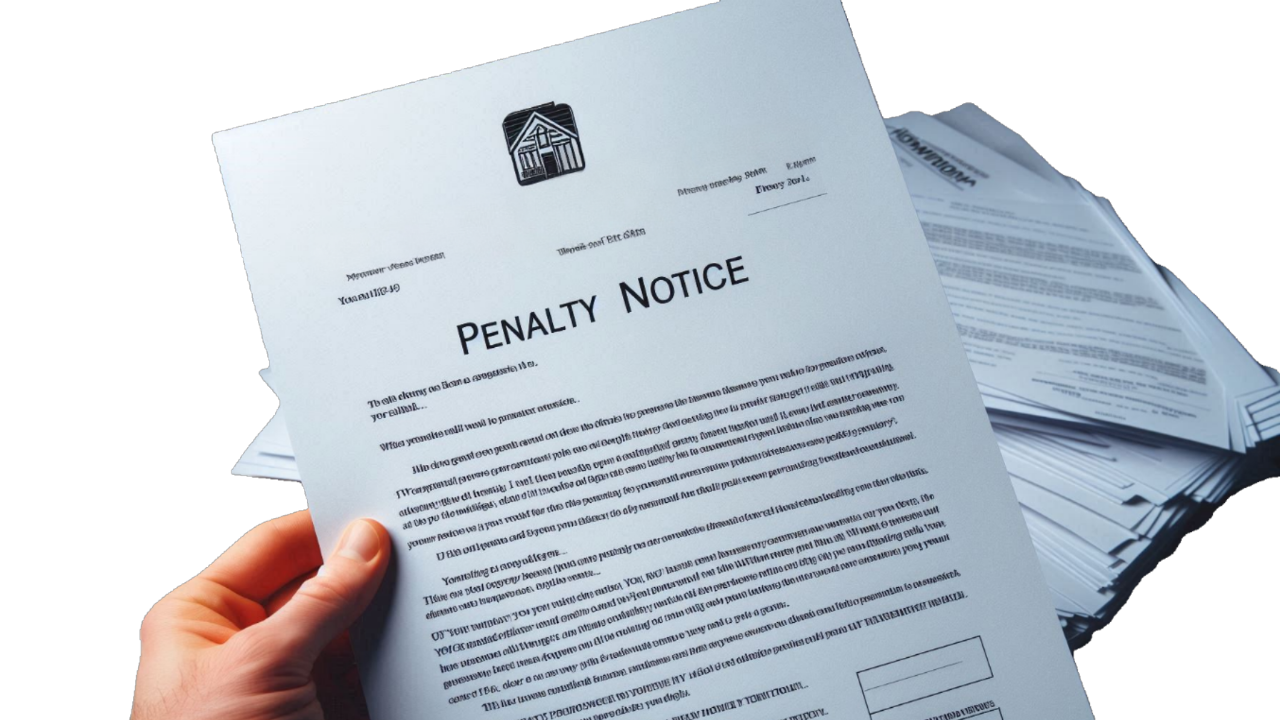Can a Tenant Sue for Mold? The Hidden Liability in Rental Homes

Mold in rental properties is more than just an unsightly nuisance—it can be a serious health hazard and a costly legal issue. Tenants exposed to mold may experience respiratory issues, allergic reactions, or worse, and in many cases, they may be legally entitled to sue their landlord. For landlords and property managers, understanding mold liability is crucial to avoid disputes and protect both tenants and investment properties.
Understanding Mold and Its Health Risks

Mold grows in moist, warm environments—often in bathrooms, basements, or anywhere water damage has occurred. While not all molds are dangerous, certain types, such as black mold (Stachybotrys chartarum), can pose significant health risks, especially to children, the elderly, and individuals with compromised immune systems.
Symptoms linked to mold exposure include coughing, sneezing, headaches, skin irritation, and even asthma attacks. When tenants believe their health has been affected due to mold in their rental uni...
How Employers Should Document Performance Issues

Performance management is a critical part of running any successful organization. When employees are not meeting expectations, it’s the employer’s responsibility to address the issue promptly and professionally. However, many businesses fail to properly document performance concerns, which can lead to legal vulnerabilities, decreased morale, and inconsistent team standards. Effective documentation not only supports fair treatment but also helps foster accountability and growth.
Why Documentation Matters
Proper documentation serves several purposes. First, it creates a clear record of expectations and behavior patterns over time, ensuring objectivity in performance evaluations. Second, it protects the company in the event of legal disputes. If an employee claims wrongful termination or discrimination, detailed documentation provides evidence that decisions were based on legitimate, job-related reasons. Finally, it provides a roadmap for employees to improve by clarifying issues and se...
The Legal Role of Escrow in Commercial Real Estate Transactions

In commercial real estate transactions, the stakes are high and the details complex. From due diligence and financing to closing and title transfer, every step must be carefully managed. One crucial mechanism that ensures security and fairness during the process is escrow. Although often misunderstood, escrow plays a vital legal role in protecting both buyers and sellers, ensuring compliance, and facilitating a smooth transaction.
What Is Escrow?
Escrow refers to a neutral third-party service that temporarily holds funds, documents, and instructions on behalf of the transacting parties until all contractual obligations are fulfilled. The escrow agent—usually a title company, attorney, or specialized escrow firm—acts impartially to oversee and execute the conditions of the agreement. Once all requirements are met, the escrow is “closed,” and the funds and property are exchanged accordingly.
In the context of commercial real estate, where transactions involve significant financial inv...
Title Matters: How to Ensure a Clean Transfer in Commercial Real Estate

When it comes to commercial real estate, there’s more to a transaction than the price tag or the square footage. One of the most critical yet often overlooked components of a successful deal is the property title. Ensuring a clean title transfer is essential not only for legal ownership but also for protecting your investment from costly future disputes. Whether you're a buyer, seller, or broker, understanding the title process is key to a smooth and secure transaction.
What is a Title in Commercial Real Estate?
In real estate, a title refers to the legal right to own, use, and transfer a property. A “clean title” means the property is free from liens, disputes, unpaid taxes, or legal encumbrances. In commercial transactions, where large sums and complex legal structures are often involved, ensuring a clean title is even more important than in residential deals.
The Importance of Title Due Diligence
Due diligence is the backbone of any commercial real estate transaction. It involve...
Entity Formation Mistakes That Could Cost You Later

Starting a business is exciting—but forming a legal entity without careful planning can lead to costly mistakes down the road. Whether you’re a freelancer growing your brand, a small business owner expanding your operations, or a startup founder ready to scale, how you structure your business matters. Unfortunately, many entrepreneurs rush through the process and overlook key steps, which can result in legal headaches, tax issues, or missed opportunities.
Here are the most common entity formation mistakes to avoid—and why each one matters.
1. Choosing the Wrong Business Structure
Many entrepreneurs default to forming a Limited Liability Company (LLC) without fully understanding the pros and cons. While an LLC is often a good fit for solo founders, it’s not always the most tax-efficient or scalable option. For example, if you plan to raise venture capital or issue stock, a C-Corporation might be better. On the other hand, if you’re a consultant making consistent income, an LLC with a...
Freelancer to CEO: When to Form an Entity and Why It Matters

For many freelancers, the journey begins with a laptop, a dream, and a few loyal clients. But as your client base grows and your income becomes steady—or even substantial—you may find yourself wondering: Is it time to form a legal business entity? Transitioning from freelancer to CEO is a major step, and forming an entity like an LLC or corporation can be a game-changer in how you operate, earn, and protect yourself.
When Should You Consider Forming an Entity?
There’s no one-size-fits-all timeline, but there are key indicators that signal it might be time to take the leap:
Your income is growing.
Once you’re making consistent revenue, especially above the $30,000–$50,000 annual mark, forming an entity can offer tax advantages and give your business structure.
You’re signing contracts.
Working with larger clients often means entering into contracts. Having a legal entity provides a more professional front and separates you from personal liability.
Read more: Common Contract Types...
How to Talk to Your Family About Estate Planning Without Causing Stress

Talking to your family about estate planning is one of the most important conversations you’ll ever have—yet it’s also one of the most difficult. Discussing money, death, and future responsibilities can be uncomfortable, emotional, and even tense. However, avoiding the topic can lead to confusion, disputes, and unnecessary stress down the road. The good news? With thoughtful preparation and a compassionate approach, you can have a productive and peaceful conversation that brings clarity and peace of mind to everyone involved.
Start Early and Choose the Right Moment
Don’t wait until a health crisis or family emergency forces the conversation. Ideally, bring it up during a calm, low-pressure time when everyone is relaxed and open to discussion. You might introduce the topic around a family gathering or after a life event like a wedding, birth, or retirement—times when legacy and planning are already top of mind.
Let your family know in advance that you’d like to talk about estate plan...
Why Health and Estate Planning Go Hand in Hand

When most people think of estate planning, they imagine writing a will or assigning beneficiaries to their financial assets. While that’s certainly part of it, estate planning encompasses much more—especially when it comes to your health. Health and estate planning are deeply connected, and taking care of one without considering the other can leave you and your loved ones vulnerable in times of crisis.
Planning for the Unexpected
Life is unpredictable. Accidents, sudden illnesses, or cognitive decline can strike at any time, regardless of age. That’s why health directives—like a living will or a healthcare power of attorney—are essential components of any comprehensive estate plan. These legal documents ensure your medical wishes are respected if you’re unable to speak for yourself, and they appoint someone you trust to make decisions on your behalf.
Without these preparations, your family may face confusion, conflict, or even legal challenges about what kind of care you should rece...
Can My HOA Really Fine Me? Legal Limits on HOA Enforcement

Homeowners Associations (HOAs) play a major role in maintaining community standards, but many homeowners are surprised to learn just how much authority their HOA has—including the ability to impose fines. But can your HOA really fine you? The answer is yes—but only within legal limits. Understanding these boundaries is crucial to protecting your rights as a homeowner.
The Basics of HOA Authority
When you buy a home in an HOA-governed community, you agree to follow its rules—typically laid out in the Covenants, Conditions, and Restrictions (CC&Rs), as well as bylaws and community guidelines. These documents outline what the HOA can regulate, from paint colors and landscaping to parking and pet policies.
In most states, including California, HOAs have the legal authority to issue fines for rule violations. However, that power isn’t unlimited.
Discover: Can an HOA Enter Your Property to Fix Landscaping Without Permission?
Legal Requirements for Fining Homeowners
Here are several imp...
10 Legal Reasons to Deny a Tenant

Renting out property comes with both rights and responsibilities for landlords. While fair housing laws prohibit discrimination based on race, religion, national origin, sex, disability, or familial status, landlords are legally allowed to deny rental applications for valid, non-discriminatory reasons. Here are 10 legal reasons to deny a tenant:
1. Poor Credit History
A credit check reveals how well a tenant manages debt. If a prospective renter has a low credit score, multiple late payments, or accounts in collections, a landlord may reasonably worry about their ability to pay rent on time and deny their application.
2. Insufficient Income

Most landlords require tenants to earn at least two to three times the monthly rent. If an applicant cannot demonstrate adequate income through pay stubs, tax returns, or employment verification, it’s legal to deny them based on the risk of rent default.
3. Criminal Background
While landlords must be cautious about blanket policies that excl...